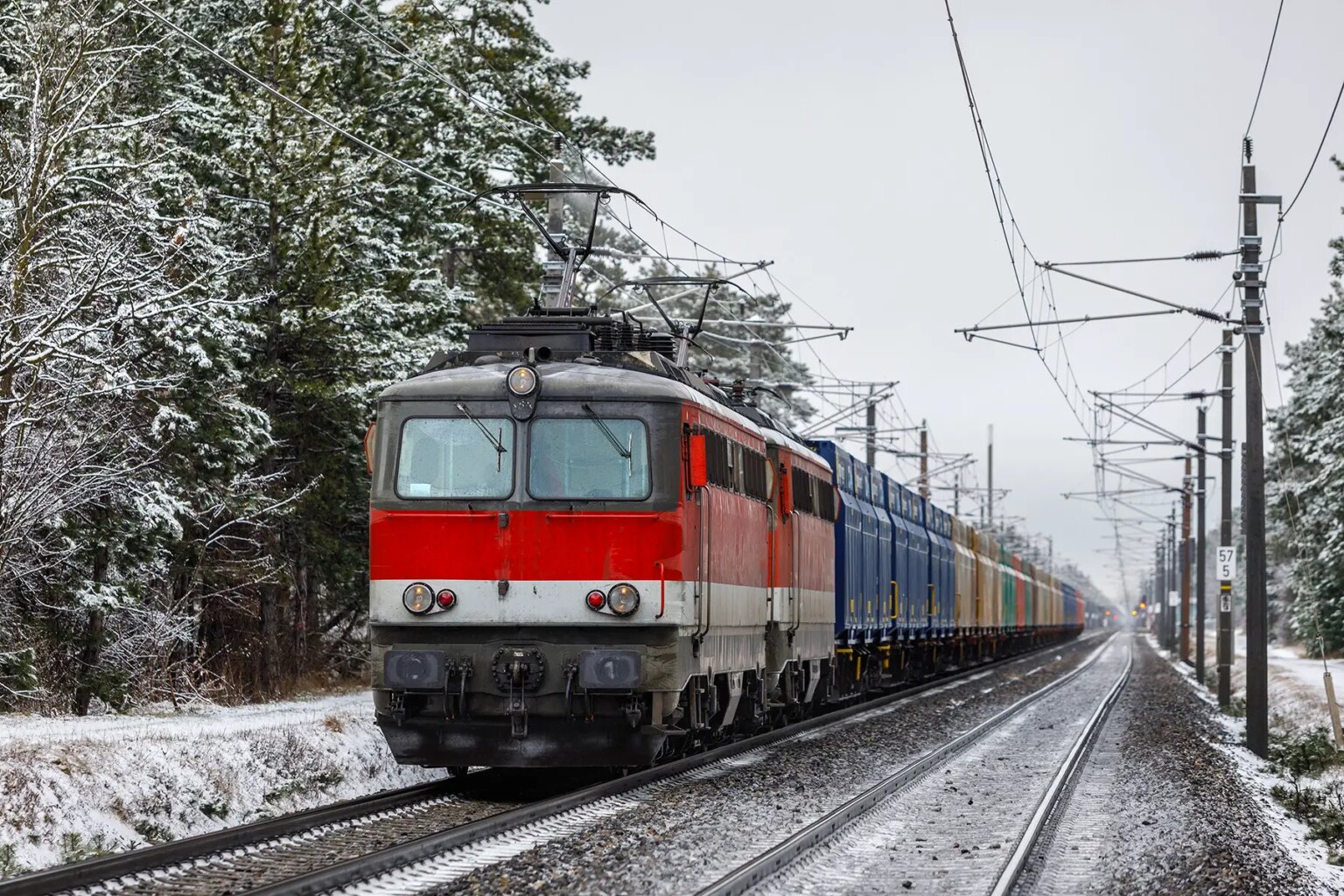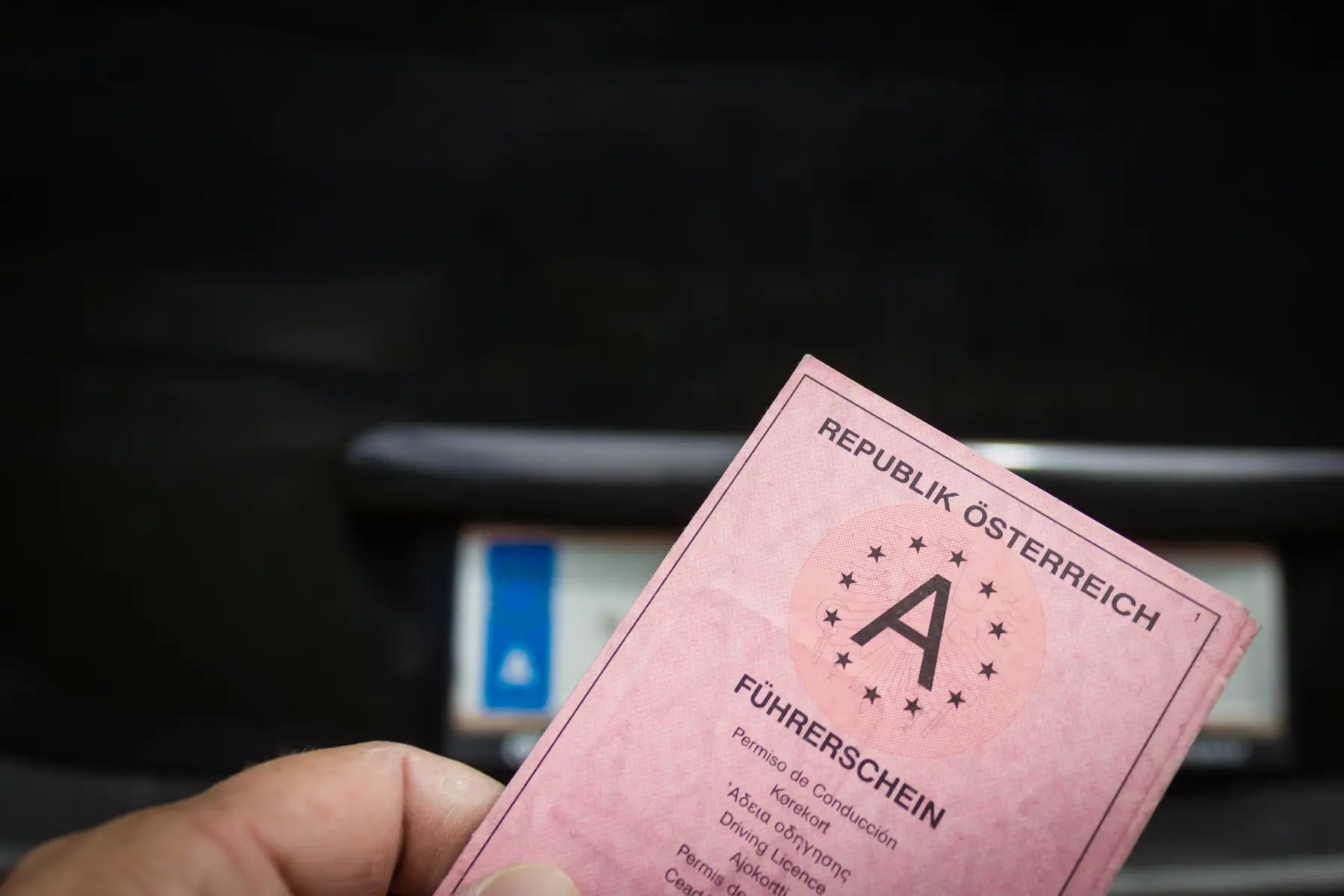If you are planning to move to Austria, one of the most important items on your moving checklist is working out the best way to transport your precious belongings to the country. After all, getting your goods to your new home is a top priority, wherever you are moving from. Fortunately for expats, there are many options for removals to Austria. For example, you can choose to send your belongings by air or sea. And, if you are moving within the EU, you can even transport them by road or train.
To help you plan your move, this guide explains everything you need to know about arranging removals to Austria, including the following:
Sirelo
It's no secret that moving abroad can be stressful. Sirelo's team of removal advisers is here to help. They provide five free quotes from international shipping companies so you can find the best options at the best prices. Take the stress out of your relocation to Austria with Sirelo.
Moving to Austria from abroad
Relocating to another country means you have to complete a boatload of formalities and tick off a long checklist of important items. For example, you will need to ensure that your visa is in order, that you have a place to stay, and that you can find a job. Among the many things that you need to work out ahead of time is how to move your belongings to Austria. And while you have many options for removals to Austria, you will need to figure out whether air freight, sea freight, or another option might work best for you.
Relocating to Austria with air freight
For most expats, air freight generally is not the top choice for moving goods to Austria. This is because it is generally very expensive. That said, it can be useful if you need your things to arrive in Austria very quickly. Nevertheless, Austrian air freight is estimated to have a revenue of US$43.2 million in 2020.
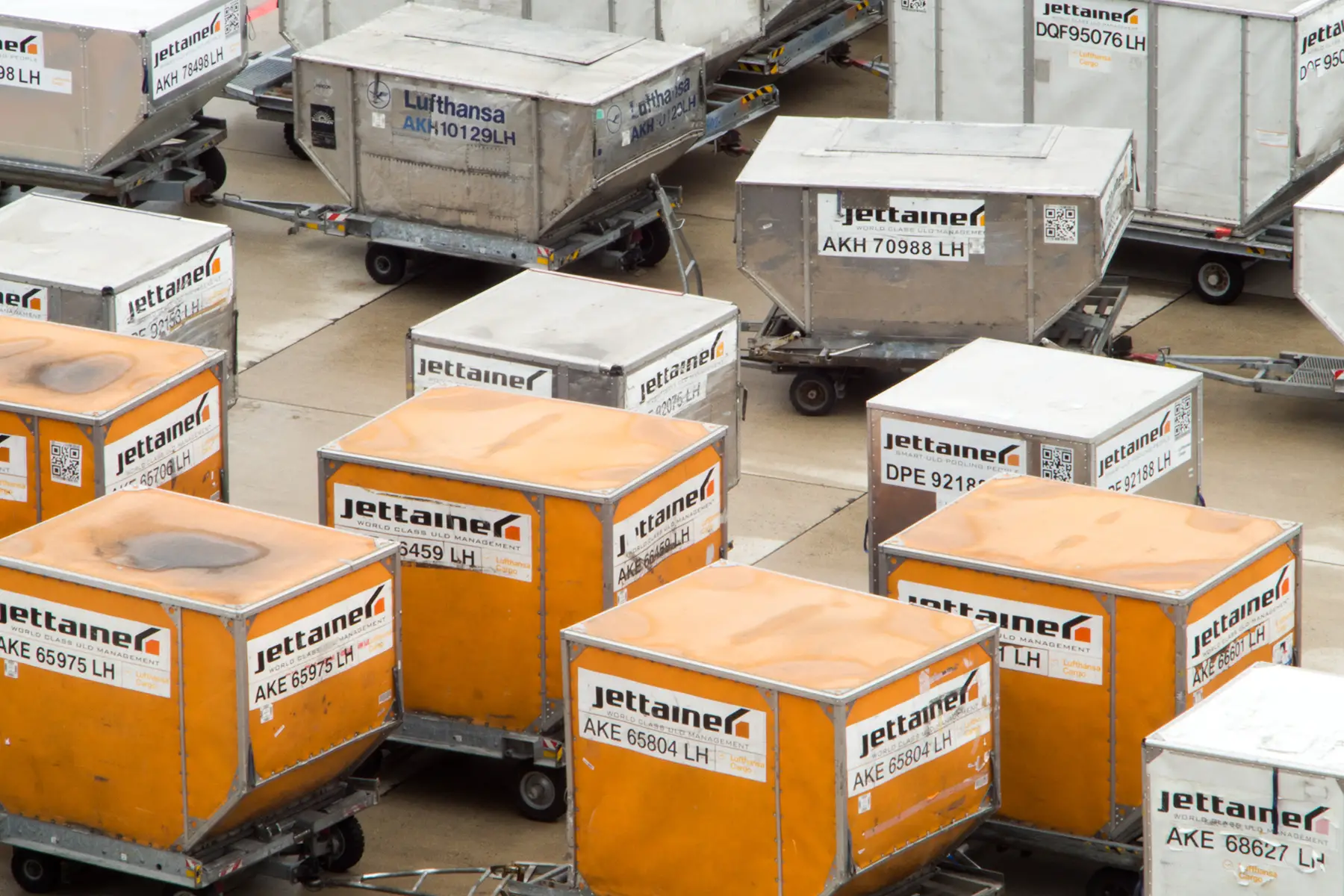
If you are looking into options for removals to Austria with air freight, then you need to know the country’s main airports. Of course, the Vienna International Airport is Austria’s main aviation hub. However, depending on where in Austria you are moving to, you may want to consider sending your air freight to the airports in Salzburg, Innsbruck, Graz, Linz, or Klagenfurt. You can find more information about airports in Austria here.
Who should use air freight?
Air freight is generally very expensive. Because of this, it is not usually the best choice for removals to Austria. However, it is the fastest way to send your goods overseas, therefore, if time is of the essence, it can be a good option. Additionally, if you only have a few smaller or lighter pieces to send, then air freight could work – just don’t expect to send furniture this way. Generally, it is best to just ship the items you will need immediately by air freight and send the rest by another method.
Another consideration is the environmental impact of this transport method. After all, air freight is by far the least eco-conscious relocation option. Therefore, if this is a concern, you should avoid it.
How air freight works
As with other relocation options, the process of air freight begins with contacting companies for a quote. To determine the costs, you will need to figure out how much stuff you are sending. There are two methods of sending goods via air freight. You can either pack everything yourself, then contact an airline or relocation company to effect the transfer. Alternatively, you can choose a relocation company to simply handle everything for you. Of course, the latter option is far more expensive, although both are still more costly than other freight options.

After you have chosen a company, the real work begins. Normally, the company will begin by getting your paperwork in order and ensuring that you complete all the necessary carrier and customs documentation. After this, you will have to pack your goods for transport. This can be done yourself, or by the company. The company will then take everything to the airport, and send it on to your new country. Then, on arrival, they will clear your goods through local customs and delivery everything to your new residence. In some cases, they may also help you unpack everything.
For many full-service international air freight companies, the process is a door-to-door service. As such, you shouldn’t have to do much between seeing off your goods and receiving them at the other end. Of course, if you have packed your goods yourself, you may have to assist with customs clearance and getting your goods from the airport to your home.
Timings for air freight
If you plan to send your belongings to Austria as air freight, you should begin making arrangements at least a few weeks in advance. Of course, air freight can operate with tighter deadlines, too, so it should be fine if you only have a week or two.
The biggest advantage of removals to Austria with air freight is that it is fast. In fact, depending on where your goods are coming from, they could arrive in Austria within just a day. At most, though, it should only take a week. Once your shipment is in Austria, it will have to go through the customs clearance process. This can be quite fast if you have a company handling this for you but may take a week or two if you are doing it yourself.
Costs for air freight
The biggest drawback of air freight is that it is the most expensive relocation method. This is because there is far less space available on flights, so it is sold at a premium. As such, you can expect air freight to be up to five times the cost of road transport or around 12 to 16 times the cost of sea freight. Nevertheless, if you choose to use air freight, you should expect to pay around US$1.50–US$4.50 per kilogram. Air cargo is even more expensive, though, and usually comes in at more than US$4 per kilogram.
The cost of air freight is normally calculated based on the actual weight of your shipment. That said, sometimes the transport company may use a minimum weight to calculate on a set weight to volume scale, which is usually around 167kgs/cubic meter. To give you an idea of cost, a 40-foot container would cost US$32,000 to ship by air from China to Austria, which is eight times the cost of sea freight.
Packing options
You will have a few different packing options if you plan to send your goods by air freight. If you are packing everything yourself and sending the parcels with an airline, suitcases are usually the best way to go. However, if you are using a removal company, they will normally use their own branded boxes and cartons.
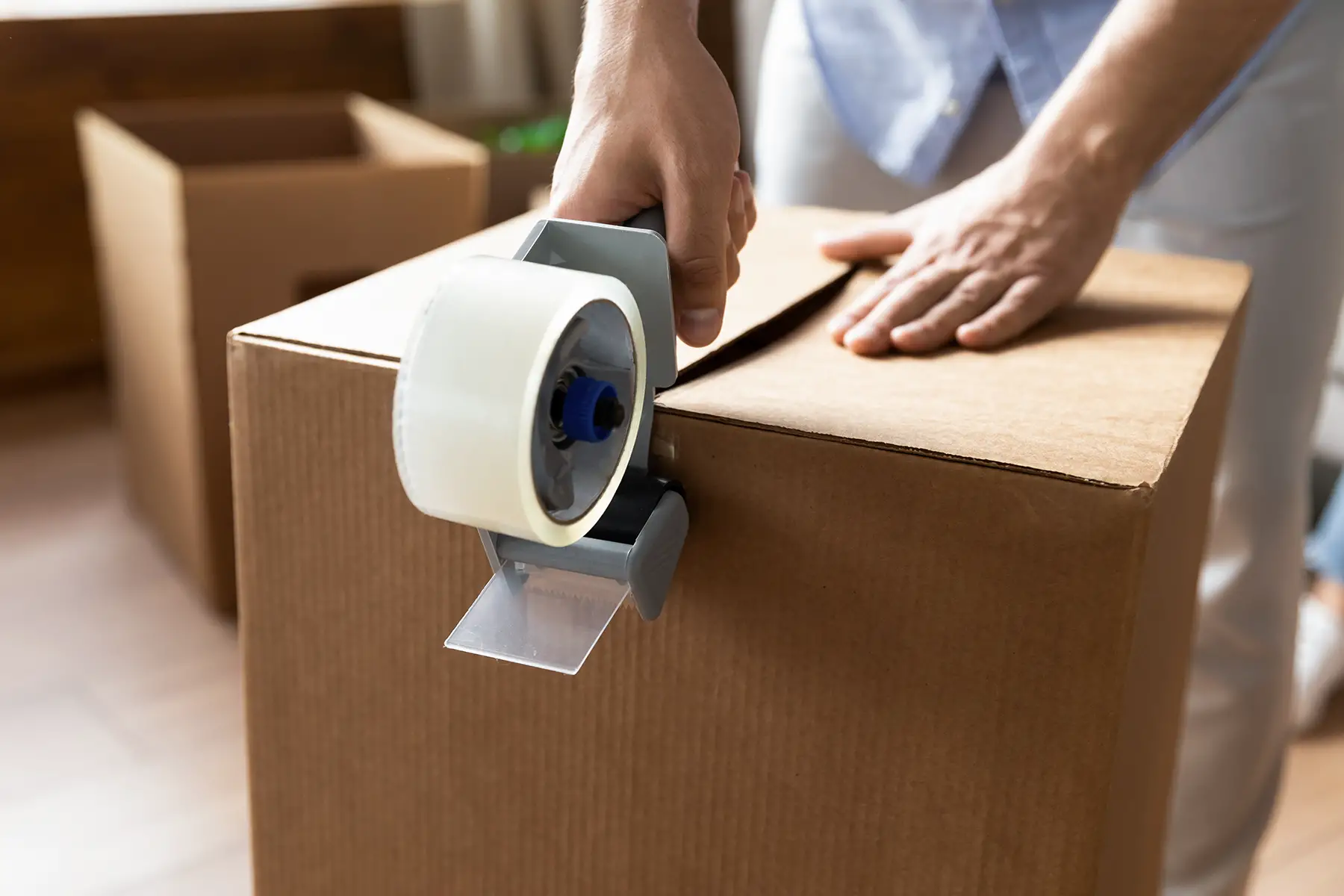
Unfortunately, air freight is not eco-friendly at all, and neither is its packaging. However, there are some ways to minimize the negative environmental impact. For example, if you are using suitcases, you should not have any wasted packing materials.
Similarly, you can check whether your removal company offers plastic crates rather than just cardboard boxes. In addition, you should use as little packing materials as possible. Doing so will make your shipment far lighter, therefore reducing its environmental impact while en route.
Finding an air freight company
Most of the major airlines offer freight or cargo shipping services, so check with the airline you plan to fly with and see if they offer this. For example, in the US, Delta, United, and Northwest all offer cargo services. Similarly, in Europe, you can book air freight with most major carriers, including British Airways, KLM, and Air France.
In addition, there are many courier companies that offer air freight, including TNT, DHL, Emery, and UPS. Then, of course, you have your traditional removal companies like Sirelo.
Relocating to Austria with sea freight
Austria has four main ports, so removals to Austria via sea will end up at the ports of Vienna, Krems, Enns, or Linz. From there, of course, they will have to travel by road to your home in Austria.
Who should use sea freight?
Although sea freight does take a while, it is the most popular form of international removals to Austria. This is because it is relatively cheap – certainly far cheaper than air freight. As such, this is a good choice for expats who want to ship a lot of things – including furniture – and don’t mind having to wait a while for their goods to arrive in the country.
In addition, sea freight is far more eco-friendly than air freight. Although container ships do emit a lot of CO2 and there is a lot of room for improvement, it is a far greener shipping method than flying.
How sea cargo works
As with air freight, the first step in the sea freight process is to contact various companies and get quotes. Usually, the company will come to your house and do an inspection of all the goods to be transported. This will help them decide whether you need a full container load (FCL), less than container load (LCL), or use groupage. Essentially, the difference between the three is whether you need a personal container or can share one with other people shipping to the same destination.
A huge advantage of sea freight is that most removal companies will offer a door-to-door service. This means that after you sign your contract with them, they will take care of everything. As such, they will come to your house and pack up all your belongings with the appropriate materials. Then, they will load your container, deal with exit customs formalities, and send your goods on their way to Austria. On arrival, they will also take care of customs clearance, transport the goods to your home, and unpack everything for you. Of course, this means that you really don’t have to do much at all.
Sea freight timings
The main disadvantage of sea freight is that it is quite slow. This is especially true when compared to air freight. If you are arriving in Austria from a non-EU country, you can expect your goods to take about a month to arrive by sea. However, if you are moving within the EU, then it will usually take less time than this.
Maritime freight costs
Sending your goods by sea freight will save you a lot of money. This is because it is often 12 to 16 times cheaper than air freight. Normally, your freight costs are worked out by shipping volume. This is why it is important to pick the right container size and decide whether you need an FCL, LCL, or Groupage. To give you a rough idea of prices, sea freight is normally around US$0.50/kilogram. So, if you are sending a 40-foot container from China to Austria, for example, it would cost you about US$4,000, which is far less than sending the same shipment by air.
Packing options
With sea freight, you won’t normally have a lot of packing options. This is because goods being transported by sea need to be packed according to particular guidelines to protect them in transit. Generally, your removal company will carefully wrap your goods in paper and pack them into cardboard cartons. These will later be loaded into the sea container on the cargo ship. In this respect, sea freight is not exactly eco-friendly. That said, you can ask your company if they reuse the boxes or if they can provide plastic crates instead.
Finding a sea freight company
If you want to ship your goods to Austria by sea, then you will have to use a reputable international removal company. Many of them operate in Austria, including Crown Relocations, AGS, Asian Tigers, and Santa Fe.
Relocation to Austria by road or rail freight
In Austria, road transport accounted for 68% of total inland freight transport in 2020, so you can see that it is a popular choice. If you are moving to Austria from within the EU, then your best option might be to go by road or rail. This is because you can easily drive or take trains across borders to get there. However, you don’t have to be moving within the EU to use this option. For example, it is possible to move from China to Austria entirely by road or train. Certainly, road or rail freight is the cheapest and most eco-friendly option.
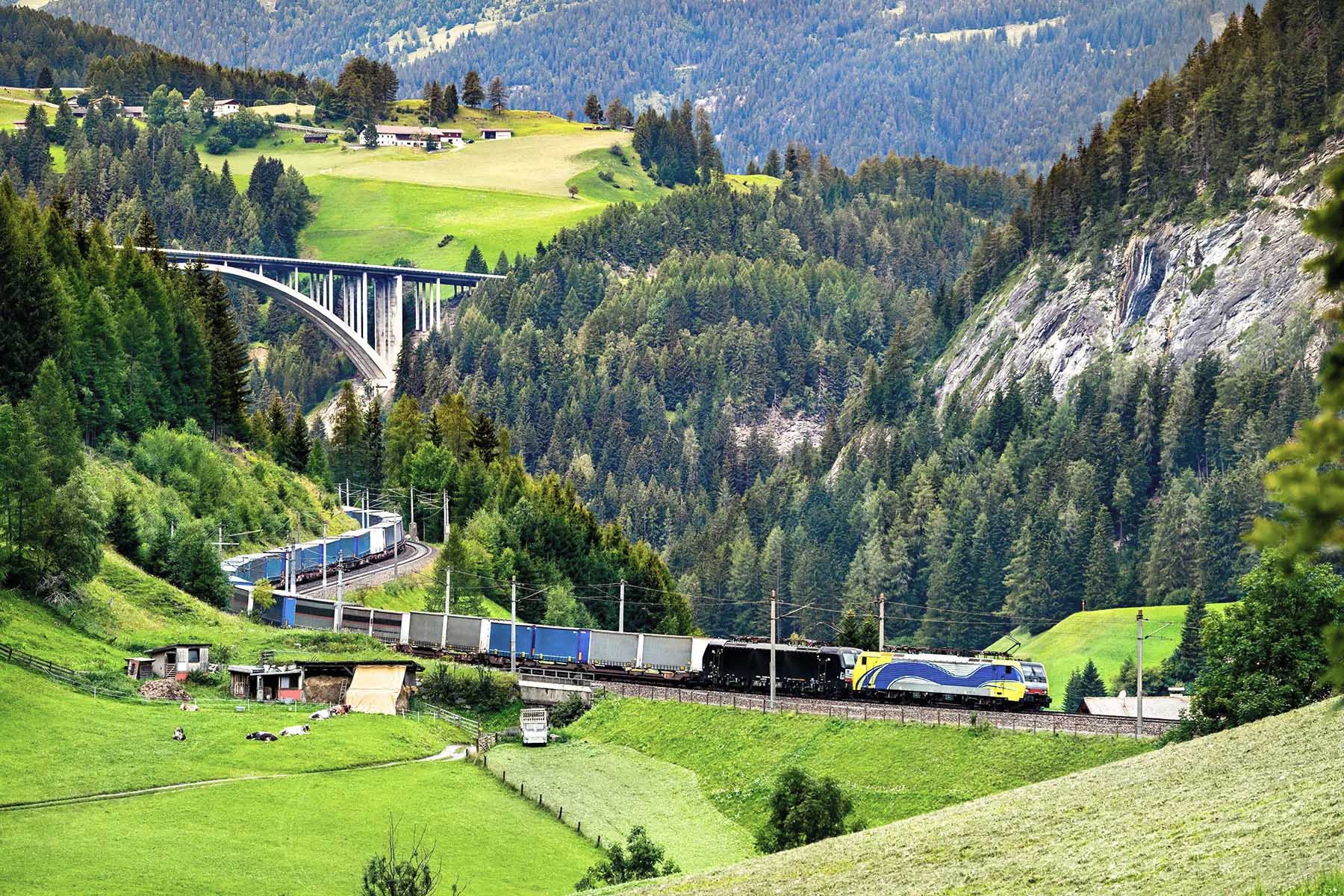
Removals to Austria by road or rail can be very easy, whether you are moving within the country or coming from somewhere else in the EU. Of course, you can simply hire movers to take care of everything for you. However, if you want to be a bit adventurous and save on costs, you can even rent a car or van and drive there yourself. In addition, if you only have a few small belongings to move, you could easily pack everything into a couple of suitcases and jump on a train (or several trains) to Austria.
Road and rail freight are generally quite fast. Depending on where you are moving from, it could take anywhere from a few hours to up to a week. Similarly, these transportation modes are reasonably cheap. For example, if you send a 40-foot container from China to Austria by train, you can expect to pay around US$8,000. This is far cheaper than air, but double the cost of sea freight.
International relocation companies
For big international moves, hiring a full-service relocation company is the easiest thing to do. They will take care of everything from packing and paperwork to customs, so you don’t have to worry. The same applies to pets and cars. Of course, these are more expensive, so you will have to weigh up cost and convenience.
If possible, you should try speaking to your relocation company around two months before you plan to move so that you have time to plan and pack everything accordingly. You could even send your belongings ahead of time so that it is there when you arrive.
How to find an international relocation company
The easiest way to find a good international relocation company for removals to Austria is to do some internet research. A quick Google search will throw up a range of options. You can also search our directory to find top relocation services.
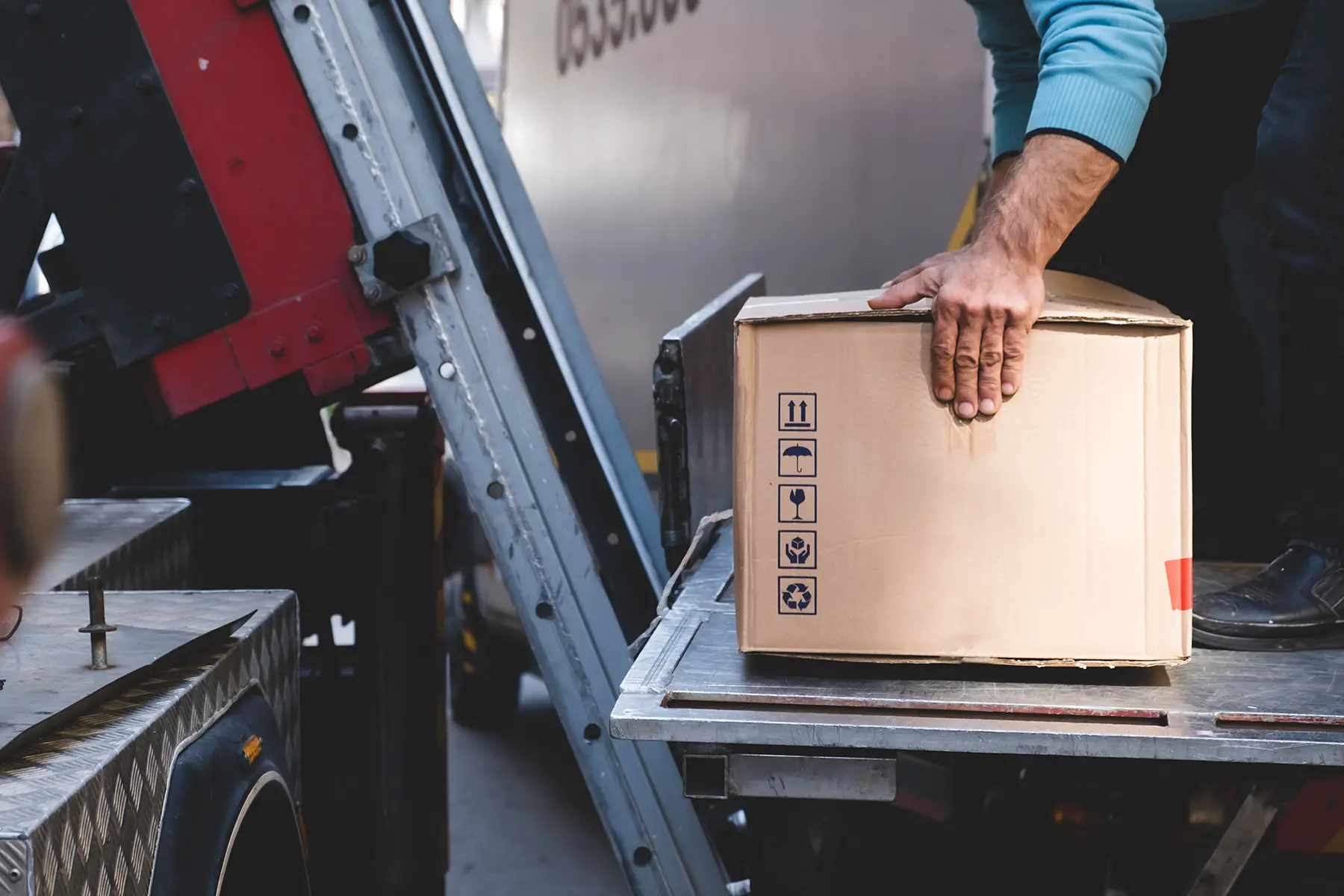
Additionally, you can ask friends who have made similar moves for a recommendation so that you know you are trusting the right company. Whichever way you go, be sure to do your research, read customer reviews, and get proper quotes. And don’t be afraid to ask questions!
Relocation companies usually offer full door-to-door services, though some will also offer tailored packages – so think about whether you need the full service or not when getting your quotes. To give you an idea of what to expect in terms of costs and timeframe, check out these international logistics platforms:
DIY versus using a relocation company
When it comes to deciding whether to hire a relocation company or do everything yourself, there are many things to take into consideration. Here are a few pointers:
- Time – do you have the time to pack and organize everything yourself, or should you leave it to someone else?
- Knowledge – do you fully understand all of Austria’s import regulations and can you adequately deal with customs yourself? If not, you should hire a removal company.
- Cost – can you afford to pay for what may be an expensive move with a removal company, or do you want to try and cut costs by doing it yourself?
- Distance – if you are moving to Austria from far away, it is far simpler to hire a removal company to handle everything so that you don’t have to deal with the stress. However, if you are moving within the EU, it is possible to just handle it yourself.
Relocating vehicles and pets
Cars
Although Austria has a great public transport system, you might want to have your own car to get around. And, while you could buy a car when you arrive, you may want to import your own, especially if you are moving from within the EU. Of course, there is a long – somewhat convoluted – process for this, but it is entirely possible.

You will certainly have to deal with customs clearance and pay several taxes in order to import your car. This includes standard consumption tax, VAT, import sales tax, customs duty, and the cost of registration and licensing.
You will also have to have the car checked by an independent body to ensure it meets local regulations and is roadworthy. Additionally, you should ensure that you have all the right ownership and customs paperwork, including the EEC Certificate of Conformity, registration certificates, and operating permit. Of course, you will have to have a valid driver’s license and arrange car insurance, too.
Pets
Similarly, if you have pets at home, you may want to bring them with you to Austria. If so, you will have to carefully plan your removals to Austria. This is because the country has very strict policies regarding animal imports. As such, you should try to begin the process four months before you move.

If you are moving within the EU, you can easily book your pets to fly on the plane with you to Austria. Alternatively, you can bring them on the train with you or drive them into the country. If you are coming from further afield, however, it may be a little more complicated. Then you need to think about getting export permits, vaccinations, special crates, and medical certificates. With this in mind, it is often easier to use a company that specializes in pet relocation.
To bring your pet to Austria, it must be properly microchipped and vaccinated in line with local regulations. This includes getting a rabies vaccine, as well as distemper, hepatitis, Bordetella, and calicivirus, among others. Once your pet has all these vaccinations, a vet must provide a signed certificate.
In addition, you will need an EU Health Certificate, which can usually be provided by your relocation company and should be filled out by your vet. If you are moving to Austria from the US, you will need to get endorsements from the USDA. They will certify your pet’s Microchip Implantation Record, Rabies Certificate, EU Vet Health Certificate, and Airline Health Certificate.
After all of this, you will need to carefully prepare your pet for the move. To fly non-commercially, your pet has to fly into Austria within five days of your flight. Although your pet can fly before this, it would be a commercial move and significantly increase your costs, restrictions, and timelines.
Customs and importing goods into Austria
Many removals to Austria will involve dealing with the local customs authority. As such, you should expect to pay import taxes and duties. However, certain types of personal goods are exempt from this, so be sure to do your research so that you don’t end up paying tax for things you don’t need. Similarly, arrivals from other EU countries are exempt. For example, all household goods and supplies – including furniture, linens, and technology – are exempt from import duties in Austria. Exercise equipment and animals are similarly exempt.

However, you will have to pay duty on any alcohol or tobacco, therefore, it is usually easiest to leave any booze, cigarettes, or cigars at home. In addition to all of this, you will have to show supporting documents to the local customs authorities to claim your exemptions. These include a statement certifying that all the property belongs to you, that you have owned and used it for at least six months, and that you lived outside the EU for at least 12 months before your arrival.
